Black History Month: Creole Nun Henriette DeLille (1813–1862) founded the Catholic order of the Sisters of the Holy Family, made up of free women of color in New Orleans. The order provided nursing care and a home for orphans, later establishing schools as well. In 1989 the order formally opened its cause with the Vatican in the canonization of Henriette DeLille. Henriette Delille was born in 1812 in New Orleans, Louisiana, into a life of privilege. Her father, Jean-Baptiste (de Lille) Lille Sarpy (French/Italian) was born in 1762 in France; her mother, Marie-Josèphe Díaz, a free quadroon Creole of color of French, Spanish and African ancestry, was born in New Orleans. Delille’s parents were Catholic, as were most Creoles and…
Category: Women in Religion
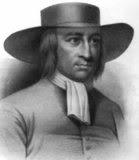
Quakers and the Revolution
Role of Quakers in the American Revolution Image: Quaker Founder George Fox The Religious Society of Friends, commonly called Quakers has opposed war and violence from its inception, and has sought instead to do away with the causes of war and alleviate the suffering it causes. George Fox, the founder of the Friends, preached in the 1640s that there was a divine spark within each person, which means that all human beings are infinitely precious in God’s sight, and no one is justified in taking the life of another.
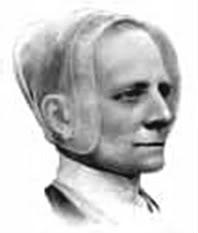
Ann Lee
Women in Religion: Leader of the Shakers Image: Mother Ann Lee The second of eight children, Ann Lee was born on February 29, 1736, in a poor district of Manchester, England, known as Toad Lane. Her father John Lee was a blacksmith whose meager income barely fed his family. Except for a parish church record of her baptism in 1742, very little is known of Ann Lee’s childhood. Since education for a girl of Lee’s station was out of the question, she was illiterate and found employment in the textile mills of Manchester. By her twenties, she was serving as a cook in the public infirmary and madhouse. Lee exhibited a religious bent early in life, found living in the…
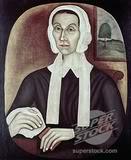
Bathsheba Bowers
Women in Religion: Female Quaker Preacher Quaker writer and speaker Bathsheba Bowers wrote a spiritual autobiography, An Alarm Sounded to Prepare the Inhabitants of the World to Meet the Lord in the Way of His Judgments (1709), one of the first published religious testimonials by an Anglo-American woman. In a biographical sketch of Bowers written in 1879, William J. Potts referred to other works written by her, but none of these has come to light in scholarly research, and her reputation accordingly rests solely on her spiritual autobiography. Raised in Charlestown, Massachusetts, Bowers was one of twelve children born to Benanuel Bowers and Elizabeth Dunster Bowers, English Quakers who had settled in America. When the Puritan persecution of Quakers became…
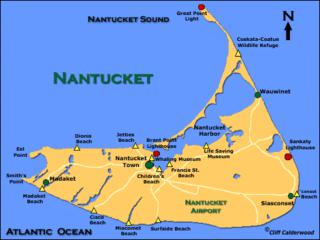
Mary Coffin Starbuck
Quaker Preacher of Nantucket Island Mary Coffin Starbuck was born February 20, 1645 in Haverhill, Massachusetts, just two years after her parents’ arrival from Devonshire, England. Ten men got together and planned the purchase Nantucket Island, off the Massachusetts shore. Mary’s father, Tristram Coffin was the leader of the group — along with Edward Starbuck, Thomas Macy, and Isaac Coleman – and the purchase took place in 1659. He took his family to the island in 1660, where he was Chief Magistrate in 1671 and Commissioner in 1675. In 1662, Mary married Nathaniel Starbuck, a prosperous farmer, local official, and partner with her father in purchasing the area from the Indians. The son of Edward and Catherine (Reynolds) Starbuck, Nathaniel…
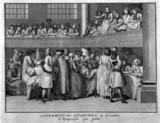
Elizabeth Ashbridge
Quaker Woman Image: Assembly of Quakers A woman preaches before an assembly of Quakers in London in 1723. Early Life Little is known about Elizabeth Ashbridge beyond what is recorded in her brief autobiography, Some Account of the Fore Part of the Life of Elizabeth Ashbridge, first published in England 1774. The book is a frank account of her unhappy marriage and her search, with the help of various religious groups, for a sincere religious faith. It is remarkable both as the spiritual testament of an intelligent and courageous woman, and also as a revealing (and often unflattering) depiction of life in colonial America in the first half of the 18th century. Elizabeth Ashbridge was born in 1713 in the…
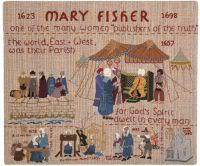
Mary Fisher
The Year: 1656 Image: Panel B2 of the Quaker Tapestry, which was devoted to Mary Fisher Quaker Beginnings In the 17th century, the Quakers – also known as the Society of Friends – were a form of Protestant Christianity that was started by George Fox in England in 1652. According to tradition, Fox was standing on Pendle Hill in northwest England when he received a vision from God directing him that instead of simply obeying doctrines and rules, he should focus on the Inner Light—the ability of every person to directly receive God’s love. George Fox believed there was no need for ordained ministers and traditional forms of worship, and began to preach this new form of Christianity throughout England….

Mary Dyer
Defied Puritan Law Banning Quakers Image: Mary Dyer Memorial at the Boston State House Mary Barrett was born in 1610 in London, England. In St. Martin-in-the-Fields, London, on October 27, 1633, Mary married William Dyer, a milliner and a Puritan. Mary and William emigrated from England to the Massachusetts Bay Colony in 1635. They settled in Boston, and on December 13, 1635, they were admitted to the Boston church. They were numbered among the intelligent citizens, being above the average in education and culture. William became a freeman of the Colony in 1636, and he held many positions of public importance. Banished from Massachusetts Bay Colony The Dyers became early supporters of Anne Marbury Hutchinson. When Anne was excommunicated, Mary…
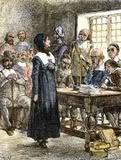
Anne Hutchinson
Women in Religion: Early American Religious Leader Image: Hutchinson On Trial Puritan leaders called Anne Hutchinson and her supporters Antinomians—individuals opposed to the rule of law. Puritans saw her as a challenge to their male-dominated society. Tried for sedition, she was also exiled as a danger to the colony. She lived in Rhode Island for a time and then moved to New Amsterdam, where she was killed in 1643 during a conflict between settlers and Native Americans. Anne Marbury was born in Alford England, in July 1591, the daughter of Francis Marbury, a deacon at Christ Church in Cambridge. Anne’s father believed that most of the ministers in the Church of England hadn’t received the proper training for their position,…
Julia Foote
Female Preacher in the Civil War Era Julia A. J. Foote’s autobiography, A Brand Plucked from the Fire (1879), is representative of a large number of similar texts published by women who believed that Christianity had made them the spiritual equals of men and hence equally authorized to lead the church. Although her autobiography attacks racism and other social abuses, it is the subordination of women and her desire to inspire faith in her Christian sisters that endow her story with its distinctive voice and intensity. Foote’s belief in the gender equality of the Christian spirit and her refusal to defer to husband or minister when her own intuitive sense of personal authority was at stake mark Foote’s autobiographical work…